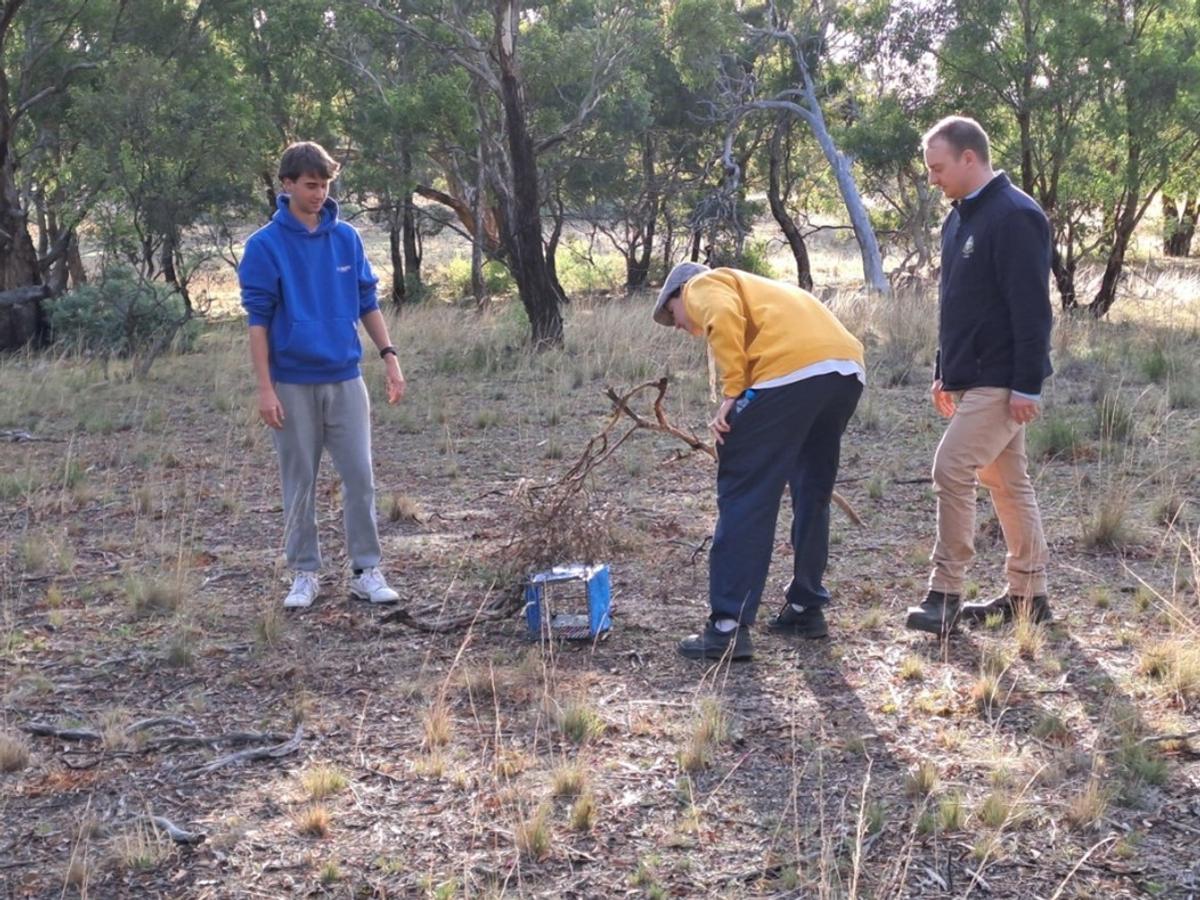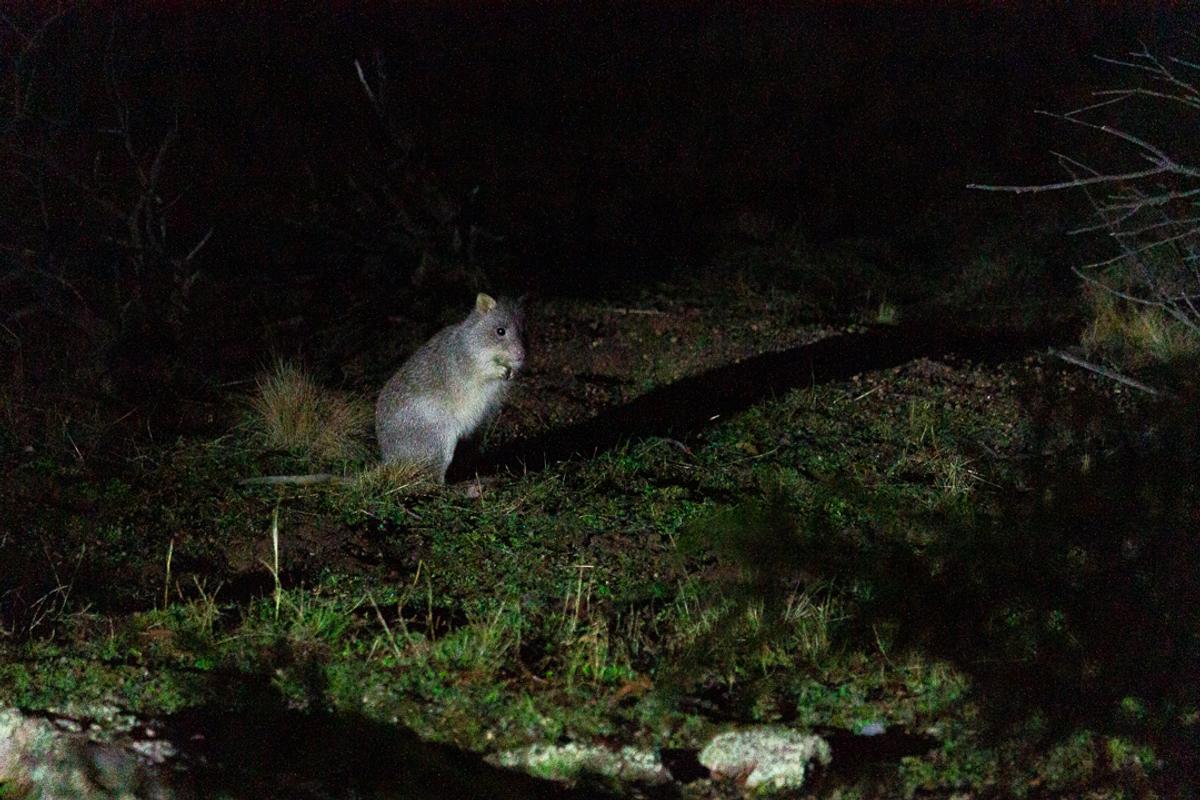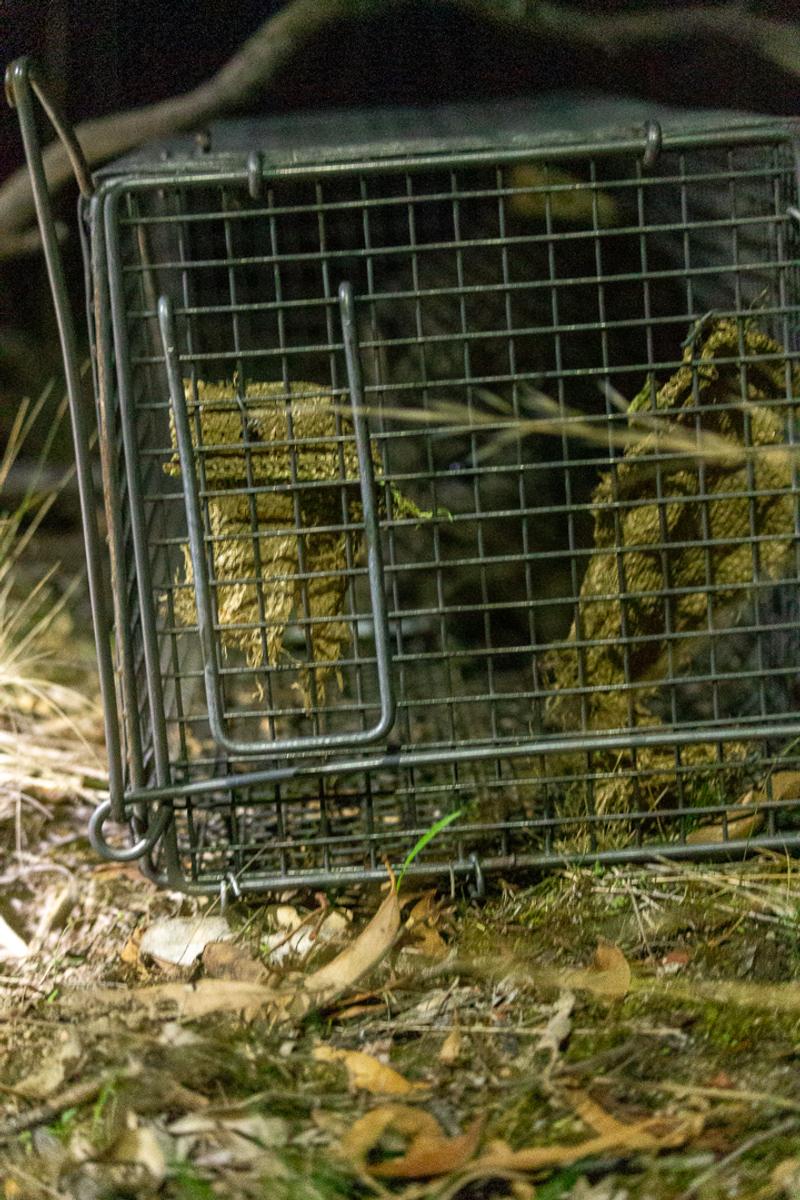Senior School
Mr Mark Robson, Head of Senior School

Senior School
Mr Mark Robson, Head of Senior School








A visit to Mt Rothwell earlier this week enabled VCE Unit 3 Environmental Science and Outdoor and Environmental Studies students to experience first hand, the techniques involved in the caring for and monitoring of some of Australia’s most vulnerable species including the Eastern Barred Bandicoot, Southern Brush-tailed Rock-wallaby, Spot-tailed and Eastern Quolls.
Some tasty bait balls (yes, there were a few taste tests) of oats, honey, peanut -butter and sardines were made by the group and then used in traps that were set in the nearby woodlands. The traps were examined a short time later and students were able to assist in the data collection of any of the animals trapped, before releasing them.
Students got up close to the expansive fence specifically designed to keep foxes and rabbits out and also met the conservation dogs that are scent trained to chase down rabbits, but leave all the native animals such as the bettongs, potoroos and bandicoots, alone.
The Eastern Barred Bandicoot, a small Australian mammal, was classified as ‘extinct in the wild’ in 2013. This was largely due to predation by foxes and cats, and the loss of its preferred habitat – the volcanic grasslands, due to farming and urbanisation. Thanks to an intensive captive breeding program conducted at Mt Rothwell Conservation and Research Reserve and two other sites in Victoria, the EBB was reclassified in 2021 from ‘extinct in the wild’ to ‘endangered.’ It is the first time the Australian government has been able to make this change.
Many thanks to the staff that accompanied the three classes to Mt Rothwell including Brendan Champness, Nathan Geaghan, Shane Hayes, Mark O’Callaghan and James Russell.
— Janelle Spierings, VCE Environmental Science teacher